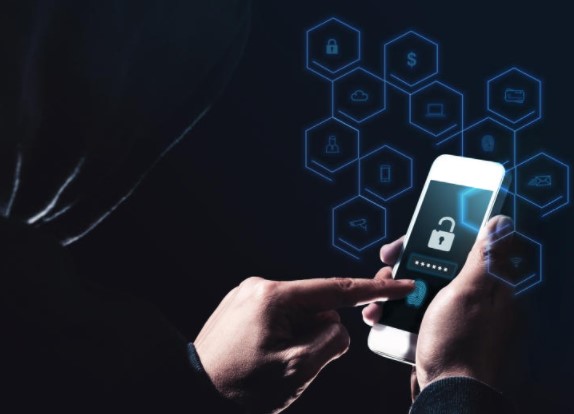×
The Standard e-Paper
Kenya’s Boldest Voice

Hooded cybercrime hacker using mobile phone with icon diagram features hacking into cyberspace. [Courtesy]
When Edgar Otieno was contacted by mobile service provider Safaricom informing him that he could not access Fuliza since he had an outstanding debt, he was stupefied.







